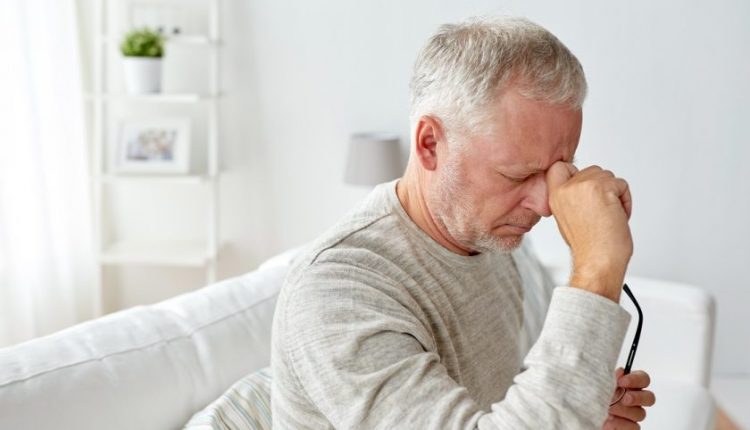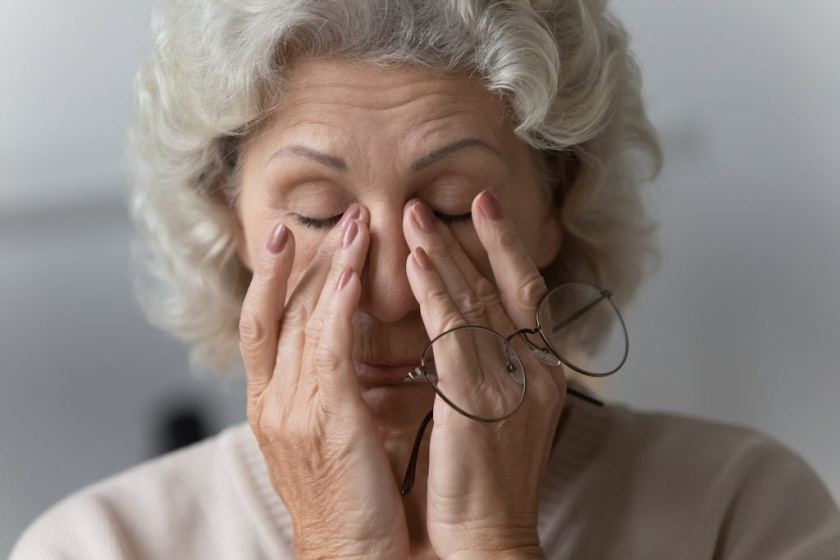
How to Stop Fatigue not to Affect Your Productivity?
Tiredness and fatigue are among the issues that all of us experience due to our busy work schedules and hectic days, but you may also feel the same during a lazy day. Ageing is one condition that leads to fatigue, and most seniors feel tired all day long. Unfortunately, seniors mostly ignore fatigue and believe that their tiredness is rooted in various other issues.
We should consider that not treating the cause of fatigue can lead to some other severe conditions. This article will investigate the causes of fatigue in seniors and propose ways to overcome them.
Contents
What Is Fatigue?

Fatigue is a feeling of lethargy or lack of energy. It is a common symptom of various medical conditions, lifestyle factors, and sleep disturbances. Fatigue can be acute or chronic, meaning it can develop suddenly and last for a short time or persist over an extended period. It can also occur because of anemia. Anemia is a condition in which the number of red blood cells is low. Thus the body has to work harder to send the necessary oxygen to the cells. As a result, you feel extra pressure on your body, leading to fatigue.
These symptoms seem similar in many seniors patients, making it difficult for the physician to diagnose fatigue correctly and whether intervention is needed. Seniors are more likely to experience decreased levels of certain hormones and suffer from chronic diseases, which increases the likelihood of experiencing fatigue.
Different Types of Fatigue in Seniors
Fatigue in seniors usually appears and exists in two forms. Here are the two types of fatigue:
- Physical Fatigue
The elderly may find it challenging to complete daily activities in physical fatigue. This condition requires you to rest, giving your body enough time to recover. This type of fatigue puts the elderly at risk because physical tiredness may cause the person to lose control and fall. It also leads to problems in coordinating movements.
- Mental Fatigue
That is another severe fatigue, and even resting may not be enough to recover the body. Mental fatigue leads to a reduction in alertness and concentration and, in some cases, amnesia. This kind of fatigue can emotionally affect the elderly and makes them irritable. Depression is another side effect of mental fatigue.
Fatigue for people over 65 can have several underlying problems. In general, fatigue in seniors occurs when the body’s metabolism, oxygen supply, hormone levels, or mental and emotional state are disrupted. Some of the most common signs of fatigue in the elderly include:
- Depression
- Cardiovascular problems
- Respiratory issues
- Hormonal imbalances such as hypothyroidism
- Malnutrition
- Metabolic issues such as diabetes
Diseases Can Lead to Fatigue in Seniors
Sometimes you may ignore fatigue while it may be a sign of a problem in your body. For example, people with rheumatoid arthritis often complain of fatigue and know it is due to the disease.
Here we discuss some diseases that can lead to fatigue in seniors in the following.
1. Anemia
That is one of the leading causes of fatigue in seniors. Anemia occurs when the level of red blood cells (RBCs) in the body drops. That is associated with various diseases because red blood cells contain hemoglobin, which carries oxygen to the body’s tissues. Anemia is associated with stress on the organs and fatigue. The decrease in red blood cells is due to their loss and the slowing down of their production process.
2. Sleep Disorders

Sleep is the body’s physiological mechanism for recovering lost strength and fatigue from physical activity during daily life. During sleep, the body rests and regains missing energy, and the body is once again ready for physical and mental activity. Sleep is one factor that plays a vital function in health and can affect the mortality rate.
If the elderly have a lack of sleep, oversleeping, sleep deprivation, snoring, etc., they suffer from sleep disorders. Although sleep disorders occur at any age, older people often face many difficulties in achieving comfortable sleep. All elderly sleep disorders can lead to fatigue since they are not thoroughly rested and lack the required energy to do their daily activities.
3. Thyroid Disorders
Research has shown that in old age, the hormonal system of the elderly will change, and then the secretion of hormones will decrease. A reduction in thyroid hormone is one of these changes. An underactive thyroid is more common in the elderly, and people with this condition may experience other issues such as weight gain, constipation, and hair loss, in addition to feeling tired. Other symptoms of hypothyroidism in the elderly include:
- Weakness
- Dry skin
- Drowsiness
- Memory loss
- Depression
- Anorexia
- Reduced attention span
4. Inflammatory Disorders
Inflammatory issues such as rheumatoid arthritis and lupus can cause fatigue, joint stiffness, and pain in the elderly.
5. Cancer
Unfortunately, cancer has turned into a widespread issue among both younger and older generations, and its cause is mainly related to our lifestyle. Cancer cells grow and spread very quickly, and cancer cells cause the body to lose a lot of its energy resources, and lack of energy leads to fatigue.
- Read More: Best foods to prevent cancer in old age
6. Chronic Fatigue Syndrome
In some cases, if the person is always tired, they may have chronic fatigue syndrome. That is also one of the worst conditions the person can suffer since resting does not solve the issue, and tiredness becomes a part of the elderly’s everyday life. It is possible to diagnose this syndrome in the long run, and it does not have a known stimulus, but it can cause lasting fatigue over several months or years.
How to Treat Fatigue in Seniors
Some people ignore the symptoms of fatigue and do not consider it a problem. However, it is necessary to see a doctor and diagnose the reason behind your fatigue. In some cases, fatigue might be due to an illness per se. Still, fatigue is a side effect of another problem in some other cases, and treating the main problem can eradicate the fatigue all at once.
1. Exercise

It might seem strange that exercise is a remedy for fatigue, which itself can lead to weariness sometimes. Research has shown that physical activity in the elderly can increase and boost energy levels and help reduce fatigue. Regular exercise increases the physical strength of seniors; exercise can improve your heart, lungs, and muscles’ function and increase your endurance for other activities. Better functioning of organs leads to a healthy life, which is the prerequisite for being energetic and not feeling any fatigue.
2. Hydrotherapy
Lack of water in the body will cause fatigue and make it more challenging to perform daily activities in the elderly. Dehydration can also reduce alertness and concentration, so providing the body with the water it needs is essential for both your physical and mental well-being in old age.
3. Sleep
Sleep is the body’s mechanism to recover itself, and it can restore the energy needed to perform daily activities. Adequate sleep prevents exhaustion, which can affect the daily functioning of the elderly. If seniors do not get enough sleep at night, a short nap during the day can help boost their energy.
4. Weight Loss

Ageing is when the body cannot burn extra calories, so all the extra calories accumulate as fat and being fat means requiring more energy to perform daily activities. That leads to using more power and feeling tired faster. Losing weight increases the energy level, reduces the pressure on other body organs and leads to a healthy life. Exercising and going on a diet are the best ways to lose weight. Also, you must know that yoga helps seniors lose weight.
5. Regular Diet
Consumption of meals and snacks every three to four hours in small volumes in the elderly can maintain the metabolic flow at appropriate levels and increase your energy. The trending diets for seniors must be composed of healthy and nutritious components.
As noted earlier, we overlook fatigue. However, it can lead to severe complications that affect our daily functioning. Untreated exhaustion can lead to various heart diseases, depression, arthritis, sleep disorders, cancer, anemia, etc. If the elderly are experiencing fatigue, it is crucial to see a doctor diagnose the cause and know how to deal with the disease.
Final Words
We often overlook fatigue, but untreated exhaustion can lead to heart diseases, depression, arthritis, sleep disorders, cancer, anemia, etc. But if you are experiencing fatigue, it is crucial to see a doctor, diagnose the cause and learn how to heal it.
Fatigue is the worst thing imaginable. I have diabetes, and last summer, I had gallbladder removal surgery. Everything was normal for a couple of months, but since last fall, I’m constantly fatigued. I get a blood test every month; my doctor diagnosed anemia. Since then, I’m taking iron supplements and vitamins. But I’m still tired all the time.
Are you physically active? Physical activity is an excellent way to fight fatigue. Ask your doctor about the exercises you can do. Walking, for example, is also one of the best ways to control diabetes and combat fatigue. Most importantly: Don’t forget to stay hydrated.
As someone who is always tired, I really appreciate this article. Now, I’m a little bit better, but I used to sleep 14 hours a day a few months ago. And it was terrible because after waking up, I would still feel tired. But then I started exercising and watched my diet. I am doing better, but I still need to work more on my lifestyle.
I thought “feeling tired” all day was normal at my age (I’m over 70), but when I did the checkup, my doctor diagnosed me with anemia. After taking pills, I felt better and more fresh during the day.
Your comment made me think that maybe I have the same problem. I’m tired every day, and I can’t go through a day feeling fresh and energetic. Maybe I should have a checkup too.
It would be best if you did that ASAP, tell your health care provider about your tiredness and ask them about the exercises you can do.
I have had to deal with fatigue all my life, and for years I was completely lost on what to do. I never dare to exercise too hard or even walk fast for fear of passing out in the streets…I mean, there are medications, of course, but the side effects will make you miss the fatigue…
Let go of medication then.
My suggestion is to drink plenty of water even when you are not thirsty, particularly in the morning. And for food, eat light and healthy, meaning fruits and veggies, cause you want to keep your blood sugar elevated.